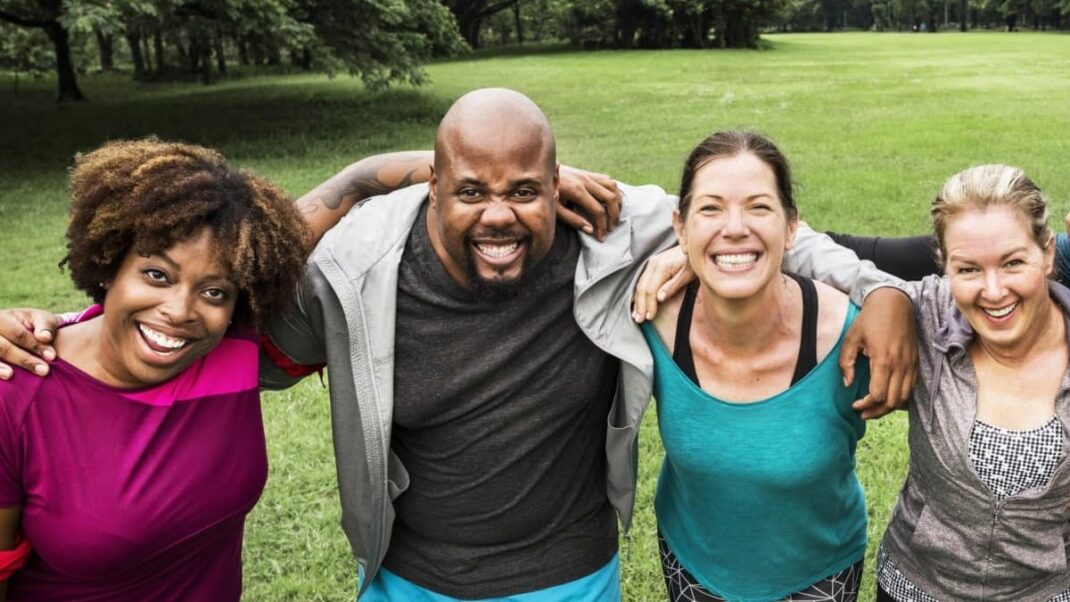The Healing Benefits of Forgiveness
Holding a grudge can affect your health.

Did you know that forgiving others can help your mind and your body? The healing power and benefits of forgiveness are recognized in religious and spiritual traditions around the world. Learn what the research says about the many benefits of forgiveness and how you can achieve it for yourself from Lee Jordan, MS, NBC-HWC, adjunct professor at Point Loma Nazarene University, and Beth Jordan, RYT-500 and co-owner with Lee of Fullest Living in Jacksonville Beach, Florida.
Why Forgive?
Why would you want to forgive someone who has wronged you? The idea of not forgiving and remaining resentful makes perfect sense, but it’s a mirage. A grudge acts like termites to your soul. From the outside you may look fine, but you are slowly being eaten away.
Above all, forgiveness cultivates self-awareness and the excavation of our best selves. Forgiveness is a paradox in that, as we forgive another person, we heal ourselves.
Moreover, in addition to the spiritual and emotional benefits of forgiveness, research reveals quantifiable therapeutic outcomes. Namely, forgiveness
- is associated with better physical health and predictive of fewer physical health symptoms (Lawler et al. 2005; Seawell, Toussaint & Cheadle 2014);
- leads to healthier cardio-vascular responses to stress and lower rates of cardiovascular disease (Friedberg, Suchday & Shelov 2007); and
- is linked with less risk of earlier death (Krause & Hayward 2013; Toussaint, Owen & Cheadle 2012).
See also: The Forgiveness Factor
Benefits of Forgiveness for Health
Frederic Luskin, PhD, director of the Stanford Forgiveness Projects, associate professor of psychology and best-selling author of several books on forgiveness, says, “No long-term relationship can survive without lots of forgiveness. People who forgive end up with deep and enduring relationships. Those who can’t often miss out on the profound benefits of long-term intimate connection.”
A large research review determined that participants with stronger social relationships had a 50% higher likelihood of survival than those with “poor or insufficient” social relationships (Holt-Lunstad, Smith & Layton 2010)! Thus, choosing forgiveness—which can increase connection—is a courageous act in support of your own health and well-being.
How to Forgive Someone
Ready to forgive? Use these suggestions from Dr. Luskin’s 9 Steps to practice forgiveness:
- Know exactly how you feel about what happened and be able to articulate what part of the situation is not okay. Then tell a couple of trusted people about your experience.
- Commit (to yourself) to doing what you have to do to feel better. Forgiveness is for you, not for anyone else.
- Be clear that forgiveness does not necessarily mean you reconcile with the people who hurt you or that you condone their actions. What you want is to find peace. Forgiveness can be defined as the peace and understanding that come from blaming another person less for what has hurt you, taking the life experience less personally and changing your grievance story.
- Get the right perspective on what is happening. Recognize that your primary distress is coming from the hurt feelings, thoughts and physical upset you are suffering now, not what offended you or hurt you 2 minutes—or 10 years—ago. Forgiveness helps to heal those hurt feelings.
For a complete list of Luskin’s 9 steps to forgiveness, see learningtoforgive.com/9-steps/.
References
Friedberg, J.P., Suchday, S., & Shelov, D.V. 2007. The impact of forgiveness on cardiovascular reactivity and recovery. International Journal of Psychophysiology, 65 (2), 87–94.
Holt-Lunstad, J., Smith, T.B., & Layton, J.B. 2010. Social relationships and mortality risk: A meta-analytic review. PLOS Medicine, 7 (7), e1000316.
Krause, N., & Hayward, R.D. 2013. Self-forgiveness and mortality in late life. Social Indicators Research, 111 (1), 361–73.
Lawler, K.A., et al. 2005. The unique effects of forgiveness on health: An exploration of pathways. Journal of Behavioral Medicine, 28 (2), 157–67.
Seawell, A.H., Toussaint, L.L., & Cheadle, A.C.D. 2014. Prospective associations between unforgiveness and physical health and positive mediating mechanisms in a nationally representative sample of older adults. Psychology & Health, 29 (4), 375–89.
Toussaint, L.L., Owen, A.D., & Cheadle, A. 2012. Forgive to live: Forgiveness, health, and longevity. Journal of Behavioral Medicine, 35 (4), 375–86.





